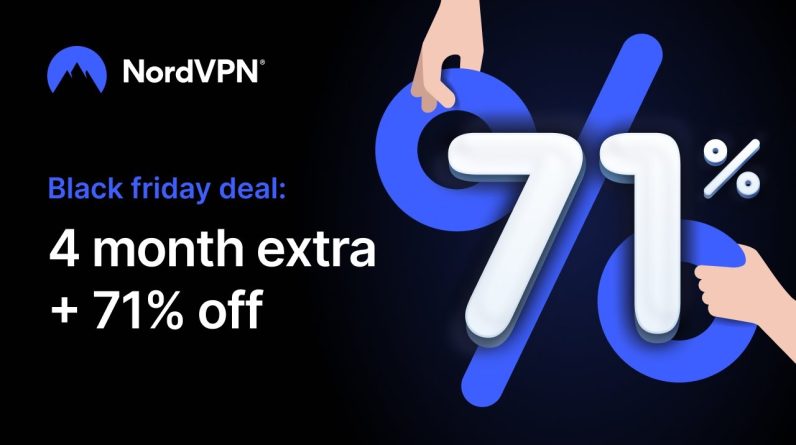What is a DNS Leak?
A DNS (Domain Name System) leak occurs when your internet traffic is routed through a Virtual Private Network (VPN) to protect your privacy, but DNS requests, which translate domain names into IP addresses, are still resolved using your Internet Service Provider’s (ISP) DNS servers. This can potentially expose your browsing history and the websites you visit to your ISP, undermining the privacy benefits of using a VPN.
How To Prevent A DNS Leak
To prevent DNS leaks and maintain your privacy while using a VPN, follow these steps:
- Use a VPN with DNS Leak Protection:
- Choose a reputable VPN service that offers DNS leak protection as a built-in feature. Most premium VPN providers include DNS leak protection.
- Test for DNS Leaks:
- Before using a VPN, you can perform a DNS leak test to check for potential leaks. There are websites and tools designed to help you with this. A popular option is “https://ipleak.net.”
- Enable the VPN’s DNS Leak Protection:
- In your VPN client settings, make sure to enable the DNS leak protection feature if available. This setting ensures that all DNS requests are routed through the VPN tunnel.
- Use a Third-Party DNS Service:
- Instead of relying on your ISP’s DNS servers, you can manually configure your computer or device to use a third-party DNS service known for privacy, such as Google DNS (8.8.8.8 and 8.8.4.4) or OpenDNS (208.67.222.222 and 208.67.220.220). This can prevent DNS leaks because your DNS requests are not reliant on your ISP.
- Use a VPN Kill Switch:
- A VPN kill switch is a feature that, when enabled, automatically disconnects your internet connection if the VPN connection drops. This prevents any potential data leaks, including DNS leaks, in the event of a VPN disconnection.
- Disable IPv6:
- In some cases, IPv6 traffic can bypass your VPN, leading to DNS leaks. To prevent this, disable IPv6 in your device’s network settings.
- Periodically Test for Leaks:
- Regularly perform DNS leak tests to ensure that your VPN and network configurations remain secure over time.
- Stay Updated:
- Keep your VPN client and operating system up to date. Some VPN clients and operating systems may introduce improvements in DNS leak protection.
It’s important to note that not all VPN services are created equal, and the effectiveness of DNS leak protection can vary. Therefore, it’s essential to choose a reliable and privacy-focused VPN service. Always read reviews, consider the privacy policy, and understand the features offered by your VPN provider.
By taking these precautions and regularly testing for DNS leaks, you can enhance your online privacy and ensure that your VPN is working as intended to protect your internet traffic from prying eyes.
You may have heard about net neutrality and want to protect your privacy on the internet. DNS leaks can reveal your IP address, websites visited and even how long you’ve been online. These data can be used to track your online activities. In order to prevent a DNS leak, you should use VPN monitoring software or an open source plugin. You can also learn how to avoid using the DNS resolver provided by your ISP.
VPN monitoring software prevents a DNS leak
A DNS leak is a problem that occurs when your network is not properly configured, especially if you frequently connect to different networks. You can test if your network is properly configured by using a website that shows you your IP address and hostname. If you notice any of these signs, you should take action as soon as possible. To get started, find out what the most common cause of a DNS leak is, and how to prevent a DNS leak.
A DNS leak is an issue of privacy, especially if you live in an area where your internet connection is restricted. The data collected in DNS records can be used for censorship, tracking, and even legal punishments. In some countries, censorship has been linked to DNS records, which means that if someone knows what you’re doing online, they can easily thwart your efforts. And you could even find yourself targeted for viewing illegal content if your DNS records are exposed. Therefore, preventing a DNS leak is a top priority for any VPN.
A VPN is a great way to protect yourself online. It protects your connection from being logged, and your ISP cannot see your internet activity if you use a VPN. DNS leaks still exist, however, if the DNS data of your VPN service is leaked. By using a VPN monitoring service, you can prevent a DNS leak and ensure your connection remains secure. The best way to do this is to look for a VPN with DNS leak protection and a built-in kill switch.
DNS leaks are caused by a transparent proxy used by ISPs to intercept web traffic and force DNS requests to their own servers. IPLeak can detect this and can fix your DNS leak. You can also manually configure your devices to use an independent DNS server like Google Public DNS or OpenDNS. There are many ways to test DNS leaks with this method, and the results are highly accurate. In addition to VPN monitoring software, you should test your DNS with a DNS leak monitoring software.
Cloudflare
Cloudflare is an internet security company which provides DNS servers to large companies. Customers include IBM, Shopify, Loreal, Doordash, and Labcorp. The company offers a free public DNS server and a range of paid add-ons ranging from $20 to hundreds of dollars. You can also install a VPN connection to the company’s servers if you suspect your own server is vulnerable.
DNS leaks occur on the network layer, at the point where the sender’s computer system contacts a DNS server or a DNS resolver to map an IP address to a URL. Because of their critical role, these servers may be leaking information that would be harmful to your privacy. Luckily, DNS leaks are usually easy to detect. DNS leak testing sites provide a simple way to identify if your DNS server is leaking information. Some even explain the implications of DNS leaks in detail.
Changing your DNS server can also help prevent DNS leaks. While the default DNS servers on your browser are generally reliable and secure, you should also switch to a more secure DNS server such as Google’s or Cloudflare. However, it is vital to clear your DNS cache often to make sure your privacy remains protected. It is a simple procedure to avoid exposing your personal information to third parties. The most effective DNS servers will be free of all cookies and third-party monitoring.
While DNS privacy solutions are popular among internet security experts, the average person does not fully understand them. However, this privacy issue is a very serious problem, and should be taken seriously even if you do not have anything to hide. In this blog, we’ll discuss how to check whether your DNS is leaking and how to prevent it. Let’s start with how DNS leaks are caused and how you can protect yourself from them.
Open-source plugin
The most effective way to stop a DNS leak in Windows 10 is to use a VPN. This is a free and open-source protocol that is often regarded as the best VPN protocol. It works by sending queries to as many DNS servers as possible, which significantly increases the speed of browsing. The downside to this protocol is that it is extremely easy to exploit if it isn’t set up properly.
Another way to protect yourself from DNS leak is to use an anonymous web browser. An anonymous web browser, such as Tor, prevents websites from discovering your true IP address. By default, most web browsers will send requests to the STUN servers of your service provider, which store your private and public IP addresses. Once this information is gathered, websites can track you across sites. This data is available to law enforcement agencies and hackers.
You can also use a DNS leak test tool to find out whether you’re at risk of leaking your DNS traffic. This tool simulates your network connection by sending it several domain names and tracking how many times it makes requests to other DNS servers. It then displays the results in your browser. The standard test completes six queries in one round, while the extended test completes 36 queries, which can take up to 30 seconds.
DNS leak prevention tools are essential for protecting your online privacy. By installing a plugin that protects your browsing activity, you can avoid the possibility of leaking DNS data to third parties. This means that hackers can access your data without your knowledge and access to it. With a VPN, you can protect yourself from this risk with ease. It’s important to make sure that your VPN service has a DNS leak protection tool installed before your internet connection is even connected to the Internet.
Also Read : Windscribe VPN For Chrome Review
Avoid using DNS resolvers provided by your ISP
A DNS leak happens when public DNS servers are used by people and the information they contain can be leaked to the internet. Most people are unaware of this, but most DNS resolvers provided by ISPs keep tons of data about their users. These servers can collect information about your original requests and store it for years. You can avoid this leak by not using your ISP’s DNS resolvers.
If you do not want your internet provider to collect your DNS information, you can also mount your own DNS resolver. To prevent a DNS leak, use a VPN or cloudflare DNS to protect your IP. If you cannot avoid your ISP’s DNS resolver, there are other options available to you. Many VPN providers will allow you to try their services for free. You can choose a VPN or Cloudflare DNS to protect your privacy and speed.
An anonymous web browser can help prevent DNS leaks by ensuring that you are browsing the internet anonymously. An anonymous browser such as Tor will not need your operating system to configure DNS. You can also install a firewall to prevent your data from leaving your computer. In addition to this, DNS proxy will also prevent your web traffic from leaving your computer and most DNS leak detection tools will detect them.
If you use a VPN, always make sure that you are using one that is independent of your ISP. A VPN vendor should also provide you with a DNS leak test as part of its services. A leak is an open door to third parties. A DNS leak is a serious security concern that is worth looking into. However, it’s not as simple as it sounds.
To prevent a DNS leak, don’t use the DNS servers provided by your ISP. This is especially dangerous if your internet service provider monitors your online activities, such as Netflix. VPN users should also send DNS requests through a VPN rather than from their browsers. If you’re not using a VPN, your browser might ignore your VPN settings and send the DNS request directly to your ISP.
Read Get Hitch for all your Apple, tech and cyber security news and information







